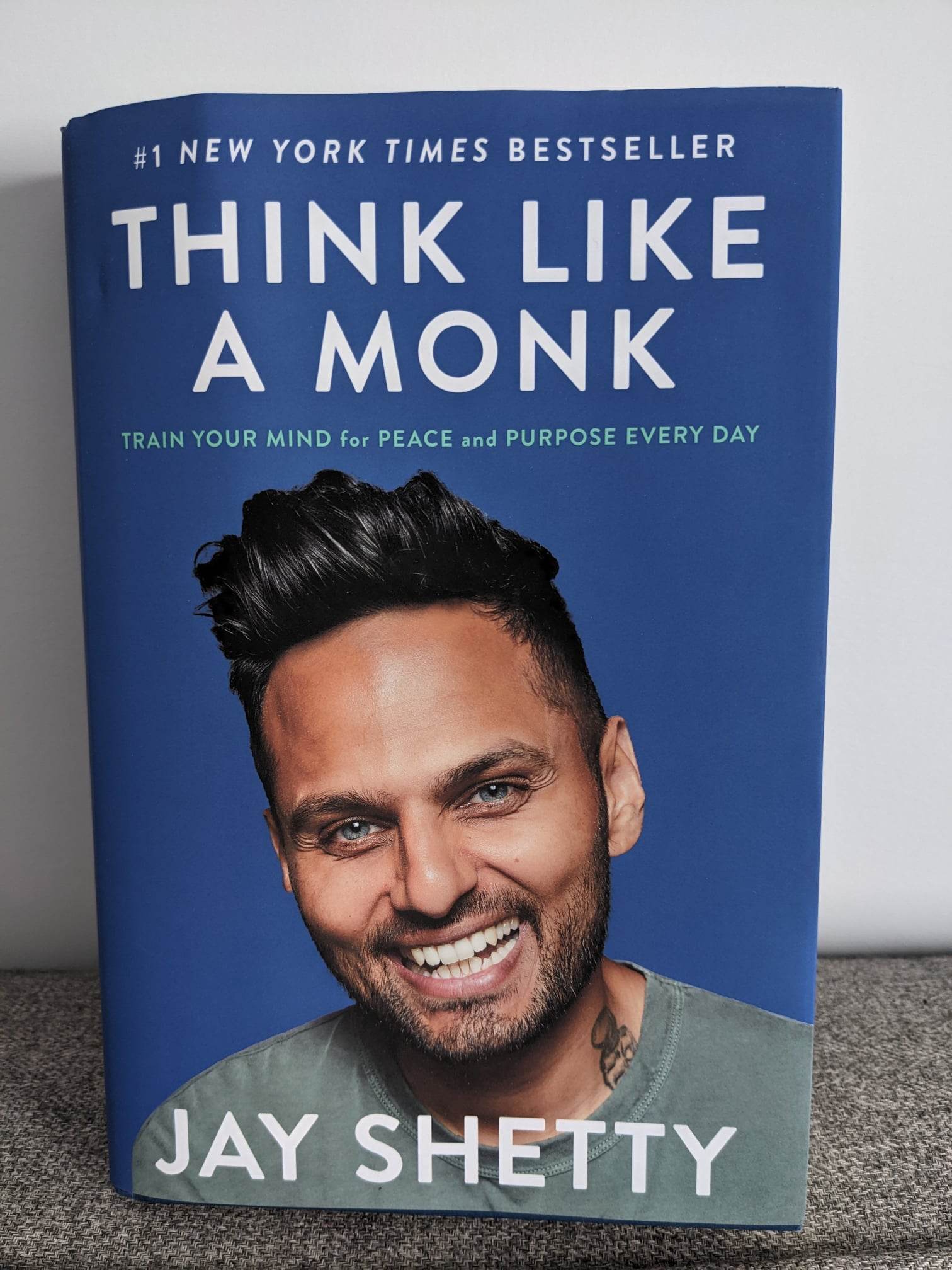Think like a Monk...ey ?

Everyone knows those little primates, but what can we learn from them? Probably something, but that's not the purpose of this article. This title comes from my mother-in-law, who didn't hear me well when she asked me what I was reading. So kudos to her for this title!
More seriously, I want to talk about the book by the well-known author and podcaster Jay Shetty: Think like a monk. In his book, Jay talks about his journey as a monk and how everything he learned has been helpful and can be applied in his after-monk life.
One thing I like in his book is the exercises he proposes. There are some exercises for the reader about each topic he talks about. For example, in the first chapter, he talks about values. He asks us to list his core values outside of work—for example, family, friends, health, sports, self, etc. Then for a week, he asks us to audit our free time and check whether or not we spend our free time on our values, on what is important to us. For example, I noticed I spend too much time gaming instead of working on myself(formation, meditation), which is more important to me. So I decided to schedule my evening hour by hour to be sure to spend time on stuff important to me.

Another topic he talks about is negativity. It is contagious. Others will try to take us down with them. We need to resist, detach emotionally from the negativity(not literally), and enjoy our choice not to be upset. About negativity, we need to compare ourselves less with others. It is easy to say, but if we spend less time comparing ourselves with others, we have more time for ourselves, our friends, and everything that matters to us. That is an excellent reason not to focus on others.

The topic that keeps coming back in the book is the Dharma. The Dharma is your purpose in life. It is something you are passionate about, have expertise in, and are valuable to the world. Everybody needs to find his Dharma. When you are in the Dharma, you should feel in the flow; you should feel you are at your place; you should feel you are always motivated to do it, and you should feel you can grow through it. Finding their Dharma is the most fundamental goal for monks. And it's not something you can find overnight.
There are a lot of other topics he speaks about in his book, like love, routine, service, trust, meditation, ego, and fear. I wanted to give you some examples of what I learned. Jay provides us in this book with a good overview of the monk's way of thinking and how we can apply them in our life in the modern world. I recommend this reading, and by doing the exercises, I can guarantee you'll find something to learn from this book. Good read!